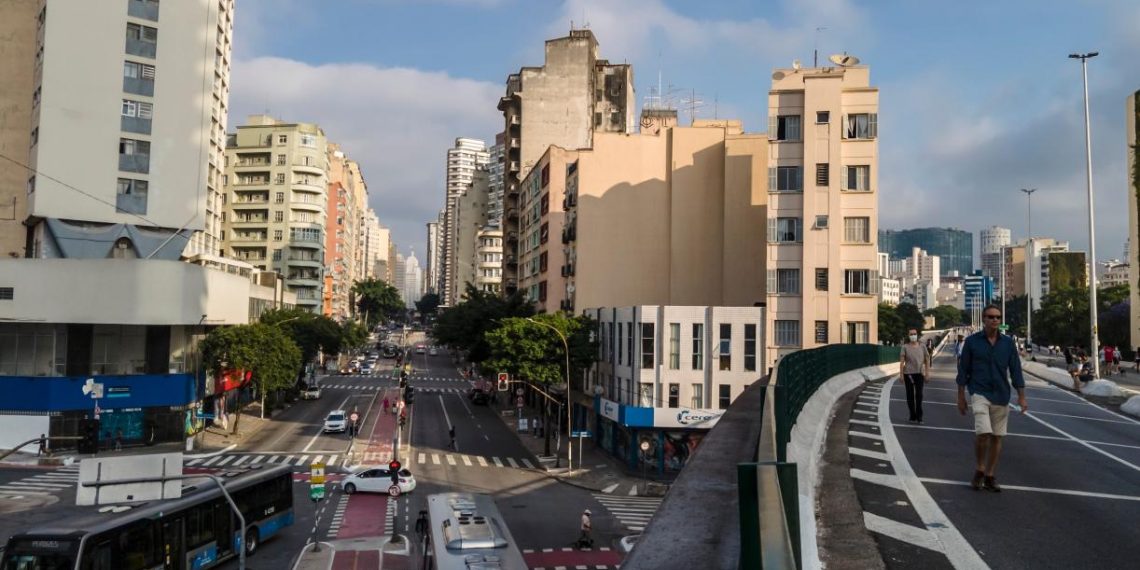Using research and engagement, WRI helped improve Brazil’s national road safety plan, which is projected to save 120,000 lives.
The Challenge
More than 1.3 million people die in traffic crashes every year. The World Health Organization estimates that 90% of these deaths occur in developing countries.
Brazil ranks fifth in the world for traffic deaths, with pedestrians, cyclists and motorcyclists comprising the greatest number of fatalities. With the UN setting a global goal of halving the number of road traffic deaths and injuries as part of its Second Decade of Action for Traffic Safety (2021-2030), countries like Brazil must accelerate action to make streets safer for people.
WRI’s Role
WRI has engaged in the issue of road safety for several years, including participating in the Third Ministerial Conference on Road Safety in 2020, helping shape the global Stockholm Declaration on Road Safety, and producing several research papers. Through this engagement, WRI experts connected with representatives from the Brazilian government, eventually becoming the only institution to sign a memorandum of understanding with the country’s Ministry of Infrastructure as a technical partner in revising the National Plan of Traffic Deaths and Injuries Reduction (PNATRANS).
Experts from WRI Brasil coordinated across several working groups, assessed Brazil’s existing road safety plans, and created safety design manuals. Experts based their recommendations for revising PNATRANS on WRI’s research on road safety, such as our Sustainable and Safe and Cities Safer by Design reports.
Other civil society partners, including Vital Strategies, Global Designing Cities Initiative – GDCI, International Association of Chiefs of Police (IACP) and Towards Zero Foundation, participated in the working groups and played an important role in ensuring recommendations were evidence-based and technically sound.
The Outcome
Brazil’s updated national road safety plan, approved September 17, 2021, aims to reduce national traffic fatalities 50% by 2030. PNATRANS will comprehensively enhance road safety in the country through initiatives like designing safer streets, strengthening regulations and enforcement, and providing traffic education.
If PNATRANS achieves its goal of reducing traffic fatalities by 50%, it will save approximately 120,000 lives between 2018 and 2030. The plan especially benefits Brazil’s low-income communities, as people living in these areas are primarily pedestrians, cyclists and motorcyclists, cities’ most vulnerable street users.



